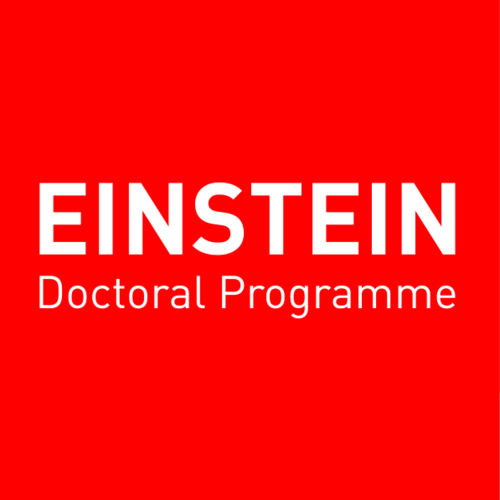Martina Basciani
Doktorandin
14195 Berlin
Ausbildung
2023- | Doktorandin, Graduate School of North American Studies, Freie Universität Berlin
2022-23 | Master of Arts, International Migration and Ethnic Relations, Malmö University, Sweden. MA Thesis zu experimenteller digitaler Ethnographie und indigenem Aktivismus
2022 | Research Fellowship – University of Toronto, Kanada
2019-22 | Master of Arts, Moderne, Postkoloniale und Vergleichende Literaturwissenschaft, “Alma Mater Studiorum” – Universität Bologna, Italien. MA Thesis zu indigener Literatur über vermisste und ermordete indigene Frauen, Kinder und Two-Spirit People (MMIWG2S).
2020 | Erasmus Stipendium – University of Kent, UK
2019 | Bachelor of Arts, Foreign Languages and Literatures (Englisch und Deutsch), “Alma Mater Studiorum” – Universität Bologna, Italien
Berufserfahrung
2025 | Ko-Organisatorin 36. EAAS Biennial Conference 1776-2026: Visions of Freedom, Universität Bologna, Italien.
2025 | Ko-Organisatorin des Workshops “Conducting Indigenous Studies in Europe”, John F. Kennedy Institute, Germany.
2025 | Ko-Organisatorin von Event mit Roundtable und Theateraufführung “Oltre I Classici: Miti e Cosmogonie nelle Culture dei Nativi Americani” [“Beyond the Classic: Myths and Cosmogonies in Native American Cultures”]. Universität Bologna, Italien (zusammem mit Cantieri Meticci: The Refugee Theatre Company).
2025 | Gastherausgeberin von ECHO – Interdisciplinäre Zeitschrift der Universität Bari, Italien.
Rethinking World Literature: Ethical Engagements with Anishinaabe Resurgent storytelling in European Contexts
(Dissertationsprojekt)
Dissertation in Literatur
Mentoring team:
First supervisor: Prof. Dr. Ulla Haselstein
Second supervisor: Prof. Elena Lamberti
Third supervisor: N.N.
Rethinking World Literature investigates the decolonial potential of a concept, an idea, that remains elusive in literary studies. At the center of a longstanding multidisciplinary debate, World Literature has often been accused of replicating the very asymmetries it claims to condemn. And yet, the absence of a comprehensive, ultimate definition of World Literature holds significant potential for further theorization. Rethinking builds on this absence to propose a theory of World Literature that prioritizes ethical relationality and consent when reading Indigenous Resurgent Literature.
By Resurgent Literature, I refer to a set of texts produced by Native American/Indigenous writers on Turtle Island (US and Canada) in the aftermath of Idle No More, the Truth and Reconciliation Commission, and broader discussions on Reconciliation with Canada. As a sociopolitical and cultural movement seeking to revitalize specific cultures while fighting for political sovereignty, Resurgence naturally places (oral and written) storytelling at its core. Serving as carriers of ancestral teachings across generations of Indigenous peoples, traditional stories constitute “the ontological and epistemological” framework of Resurgence (Simpson, 2011), guiding grassroot advocacy and sustaining longstanding Indigenous methods of resistance. In turn, everyday events of personal and collective Resurgence continue to inspire new stories, fueling the production of texts. Resurgent Literature, therefore, can be understood as a distinct moment or tradition in the broader history of Indigenous literature: politically engaged, simultaneously “tribal” and new, and at once local and global – national and transnational.
In recognition of the diversity and specificity of Indigenous philosophies, Rethinking focuses on Anishinaabe Resurgent Literature, particularly the post-2015 works of two prolific and renowned authors: US-based Chippewa writer Louise Erdrich and Canada-based Michi Saagiig writer, academic, and performer Leanne Betasamosake Simpson. Different in generation, geopolitical context, and relationship to mainstream culture, Erdrich and Simpson illuminate the contemporary role of Indigenous literatures in the world, as their works are also widely circulated in European academic contexts. As the longstanding interest in Native literatures grows across the continent – reopening the problematic question of conducting Indigenous studies from a non-Indigenous perspective – Rethinking intervenes by offering an alternative. Rather than a prescriptive model, World Literature here becomes a mode of reading in conversation: rejecting extractivism and commodification, valuing diversity and consent, and fostering ethical exchanges among different worldviews.
Veröffentlichungen
(im Erscheinen) 2025 | “The Grammar of Re-surgence: Mapping Indigenous Concepts in Motion”. ECHO, Vol. 7.
2025 | “Resurgent Water in Anishinaabe Storytelling: Leanne Betasamosake Simpson’s ‘She Sang Them Home’ and ‘Big Water’. JamIt!, Vol. 10, No. 4, pp. 75-92.
Konferenzbeiträge
“Resurgent Water in Nishnaabeg Storytelling: A Case Study”. 47th American Indian Workshop (AIW), University of Madrid, Spain. March 2025.
“Resurgent Water in Anishinaabe Storytelling: Leanne Betasamosake Simpson’s “Big Water”’. Relaunch of the Indigenous Studies Research Network. University of London, UK. September 2024.
“Decolonizing World Literature through Anishinaabe Resurgent Storytelling”. 25th Anniversary of The Futures of American Studies Institute.Dartmouth College, USA. June 2024.
“Back to the Future with Amik: Indigenous Storytelling and Blockades as Civil Disobedience”. Graduate Conference, University of Bologna, Italy. June 2024.
“‘I’ll Be There for You’: Hierarchies, Border Identities, and the American Dream in Dina Nayeri’s The Ungrateful Refugee (2019)”. 35th EAAS Biennial Conference, Munich, Germany. April 2024.




